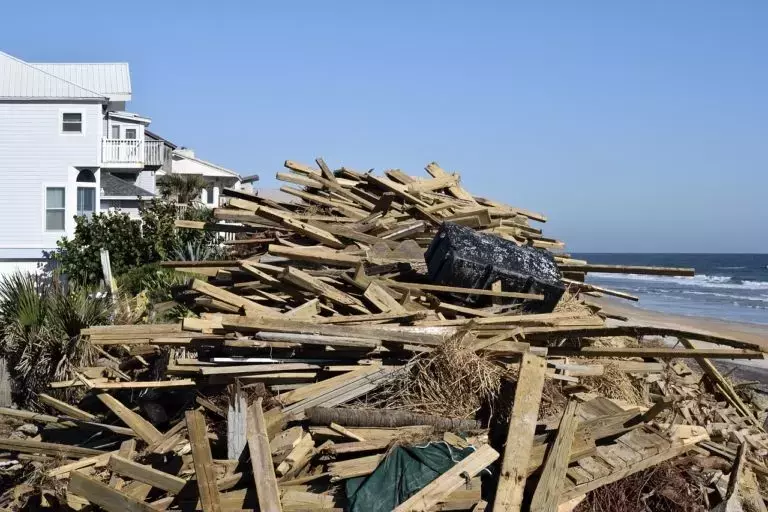The North Carolina Office of Recovery and Resiliency (NCORR) has found itself at the center of a storm of questions and controversies. A recent report has revealed that NCORR has ordered contractors to halt the construction of new homes for Hurricanes Florence and Matthew victims and has also suspended payments to contractors working on ongoing construction projects. This development comes at a time when the agency has already been under fire for mismanaging funds, with a reported budget deficit of up to $221 million.
Former Director's Accountability and Interim Leadership
Former NCORR Director Laura Hogshead openly took responsibility during a state legislature hearing last month. The North Carolina Department of Public Safety (NCDPS), which oversees NCORR, announced on November 20 that she was no longer with the agency. Pryor Gibson, the deputy legislative counsel to Gov. Roy Cooper, has been appointed as the interim director.NCORR's spokesperson confirmed the stoppage in an emailed statement to Carolina Journal. They stated that through the Rebuild NC program, 2,955 families have been returned to safer and more resilient homes. While new "Notices to Proceed" for new projects have been paused to work with the General Assembly for funding, the agency remains committed to rebuilding homes for storm-impacted communities. Payments to contractors working on current projects have also been affected, but NCORR has continued to pay for completed work as funds are approved.Budget and Construction Status
Despite having a nearly $1 billion budget, as of November 18, NCORR still had 1,400 homes pending construction, and 766 families were in the rebuilding process. During the November 18 Joint Legislative Commission on Governmental Operations and Subcommittee on Hurricane Response and Recovery hearing, it was revealed that in addition to paying $2.1 million per month on temporary relocation assistance for displaced individuals, NCORR was behind on contractor payments due to encumbered funds. They owed $37.6 million in outstanding invoices and paid out $5 million weekly.Legislative Scrutiny and Reforms
NCORR has faced legislative scrutiny for years due to operational issues dating back to Hurricanes Matthew and Florence. Legislators, such as Rep. Jake Johnson, R-Henderson, slammed NCORR during the hearing. Johnson expressed concerns about the lack of confidence in the agency's ability to handle future disasters properly and called for major reforms. In his emailed comments to Carolina Journal on Tuesday afternoon, he emphasized that the legislature has repeatedly provided funds to NCORR, yet contractors are not getting paid and work is not being completed. He has no confidence in replicating the current system in western North Carolina and hopes for a faster and more efficient approach in the future.A provision in SB382 also addresses the ongoing issues with NCORR. The bill requires the state auditor to examine NCORR's finances and performance by July 1, 2025, and additional periodic audits are mandated, including those requested by the Director of the Budget or the General Assembly.Helene Recovery Efforts
Last Thursday, North Carolina House Speaker Tim Moore, R-Cleveland, announced the creation of the House Select Committee on Helene Recovery. Reps. Dudley Greene, R-McDowell, and Majority Leader John Bell, R-Wayne, will co-chair the committee, which will meet until the end of the year. Moore emphasized the importance of this committee in helping western North Carolina recover and rebuild after Hurricane Helene. He stated that by hearing from key stakeholders and resources, they can ensure a coordinated, effective, and needs-focused response. Moore, Greene, and Rep. Destin Hall, R-Caldwell, were in Washington D.C. on Tuesday to urge Congress and the Federal Emergency Management Agency (FEMA) to take immediate action to aid communities devastated by Hurricane Helene. They held meetings with federal officials and lawmakers to emphasize the need for increased disaster recovery support, expedited FEMA assistance, and long-term investments in resiliency.
